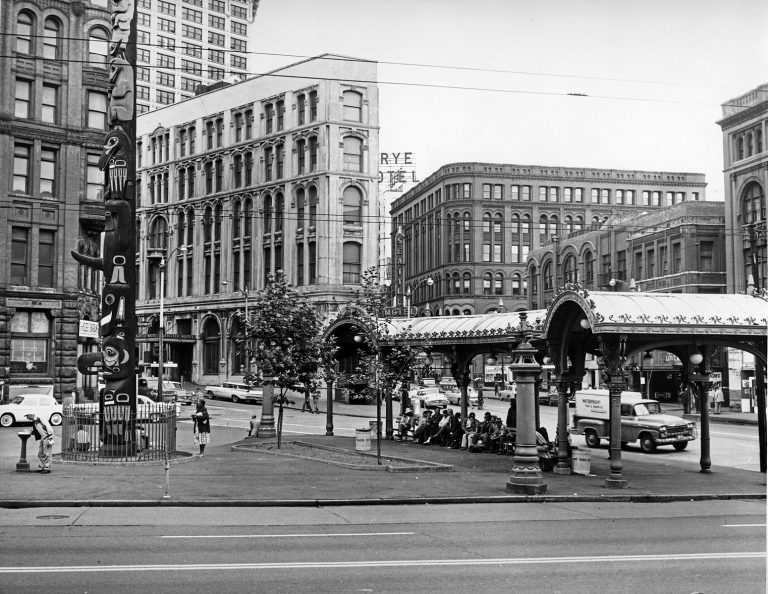Published on August 26, 2021

Josephine Ensign is a professor at the University of Washington School of Nursing and the author of a new book called “Skid Road: On the Frontier of Health and Homelessness in an American City.” The book digs through layers of Seattle history to reveal the stories of overlooked and long-silenced people who live on the margins of society.
But Ensign also has her own personal experience with homelessness. I sat down with Ensign and talked about this, what she feels is a crucial element to combating homelessness in our region, and the first documented case of homelessness in Seattle.
And a note: this conversation does have a brief mention of suicide.
We start by going back to Seattle in 1854 and hear about Edward Moore …
Josephine Ensign: … who was a relatively young sailor from Massachusetts, was found half-frozen on a beach in what’s now the Belltown area of Seattle. And I’m sure people have heard of Doc Maynard, the town’s first kind of official physician. He amputated Edward Moore’s frozen feet with an ax, and he and his wife, his second wife, Catherine, took him into their home for a while to help take care of them. And they were able to nurse him back to health in terms of his physical health, although he was permanently crippled. But he had some sort of insanity. They don’t really specify what it is. It’s most likely he had schizophrenia. And so the townspeople … it was a very small town, probably about 50 residents at the time … white residents … got together to figure out what to do with him. They shipped him down to Steilacoom to be cared for by a physician, and he came back up to Seattle and then he ended up back on the beach taking care of himself. Not very well.
The townsfolk finally were frustrated and took up a collection of their own and paid a ship’s captain to ship him back to his hometown in Worcester, Massachusetts. And that’s kind of where the history of Seattle’s first official homeless person, “Insane Pauper,” stopped. But as I was doing research, I finally had a librarian in Worcester County in Massachusetts who alerted me to his death record. And so it ended up that he had returned to his family in Ashburnham, then he killed himself. He hung himself not long after he had returned. So that’s what took me off on the journey of what became this book.
Kevin Kniestedt: So the topic of homelessness is personal to you on what seems to be a variety of levels. I’m wondering, first and foremost, could you talk about the fact that you had your own experience with homelessness?
Josephine: I did. I was homeless for about six months in my hometown of Richmond, Virginia. And it was when I was a young adult, and I was already a nurse and nurse practitioner. And I was working with one of the first health care for the homeless clinics in our country in Richmond, Virginia. At that point was also operated by a very fundamentalist Christian organization. And I had kind of a clash of worldviews with them over especially treatment of people with HIV/AIDS and also women and girls asking for abortions. And so that factored into it, as well as the disintegration of my marriage, into a really deep depression. And I lost my job, lost my marriage and lost my home and I was homeless, kind of living in my car and kind of abandoned sheds. And what we call couch surfing with very various people is very unstable, unhoused if not literally homeless on the streets or in emergency shelters for six months until I did my own Greyhound Therapy and got out of Richmond, went to Baltimore, had a had a change of scenery and went back to get my doctorate in public health to try and affect change at a different level. And then was able to work for an agency in Baltimore, an HIV/AIDS clinic that was much more in line with my values. And so I got out of homelessness.
And obviously that’s my own personal story. I totally recognize my privileges, including white privilege and the fact that I already had a good education, I had a good degree in nursing, so that my path is much different than people who don’t have those advantages. But it has definitely affected both my work as a nurse, as a nurse practitioner. I continue to do hands-on work with people experiencing homelessness and having a direct impact on policies and programs.
Originally written by Kevin Kniestedt for KNKX.